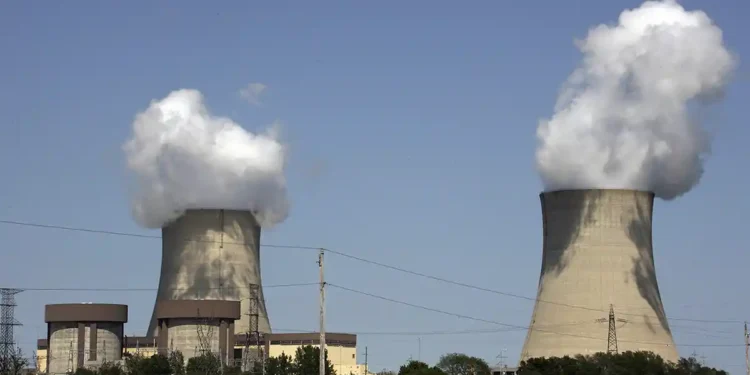The government of Ghana is actively seeking funding for the development of a nuclear power plant, a pivotal component of its strategy to augment the nation’s electricity generation capacity and provide a more dependable and efficient energy supply to its citizens.
While the precise costs and project locations remain undisclosed, Ghana is in discussions about collaborating with the United States to finalize a Memorandum of Understanding (MOU) and launch this significant endeavor.
This noteworthy revelation came from Professor Samuel Boakye Dampare, the Director General of the Ghana Atomic Energy Commission, during a Ministerial Conference on the International Framework for Nuclear Energy Cooperation (IFNEC) held in Accra. The conference convened energy ministers from across Africa, high-level officials, nuclear energy experts, and key stakeholders to deliberate on regional and global cooperation and the policies essential for advancing nuclear energy initiatives.
The Government of Ghana and Its Impact On Nuclear Plants Education And Regulation.
Professor Dampare underscored Ghana’s progress in nuclear education and regulation. Through the International Independent Atomic Energy, around 30 PhD students have received training in nuclear and related sciences abroad, and comprehensive regulations governing nuclear power plants have been established. The Ghanaian government is presently considering whether to opt for medium-sized or larger nuclear power plants, relying on recommendations from the Commission and the Nuclear Power Institute. Furthermore, in its commitment to enhancing nuclear energy in Ghana, the government founded the Nuclear Regulatory Authority as an independent entity in 2015.
Professor Dampare also shed light on the pivotal role played by the jointly established School of Nuclear and Allied Sciences, a collaborative effort between the Commission and the University of Ghana, in nurturing human resources for the nuclear sector.
Mr. William D. Magwood, the Director General of the Nuclear Energy Agency (NEA), expressed the agency’s unwavering support for the Ghanaian government in fully harnessing the potential of nuclear technology. He commended the government for its dedication to adopting nuclear energy and for establishing institutions such as the Nuclear and Allied Sciences, which oversee the advancement of nuclear technology.
Dr. Kwaku Afriyie, the Minister of Environment, Science, and Technology, emphasized Ghana’s abundant natural resources, including gas and petroleum. He stressed the imperative of contemplating the Ghana funding for nuclear power plant to support various industries, especially in light of climate-related challenges, such as the Akosombo Dam spillage that impacted numerous regions in the country.
Also read Production of nuclear energy in Ghana to begin by 2030.

Leave a Reply